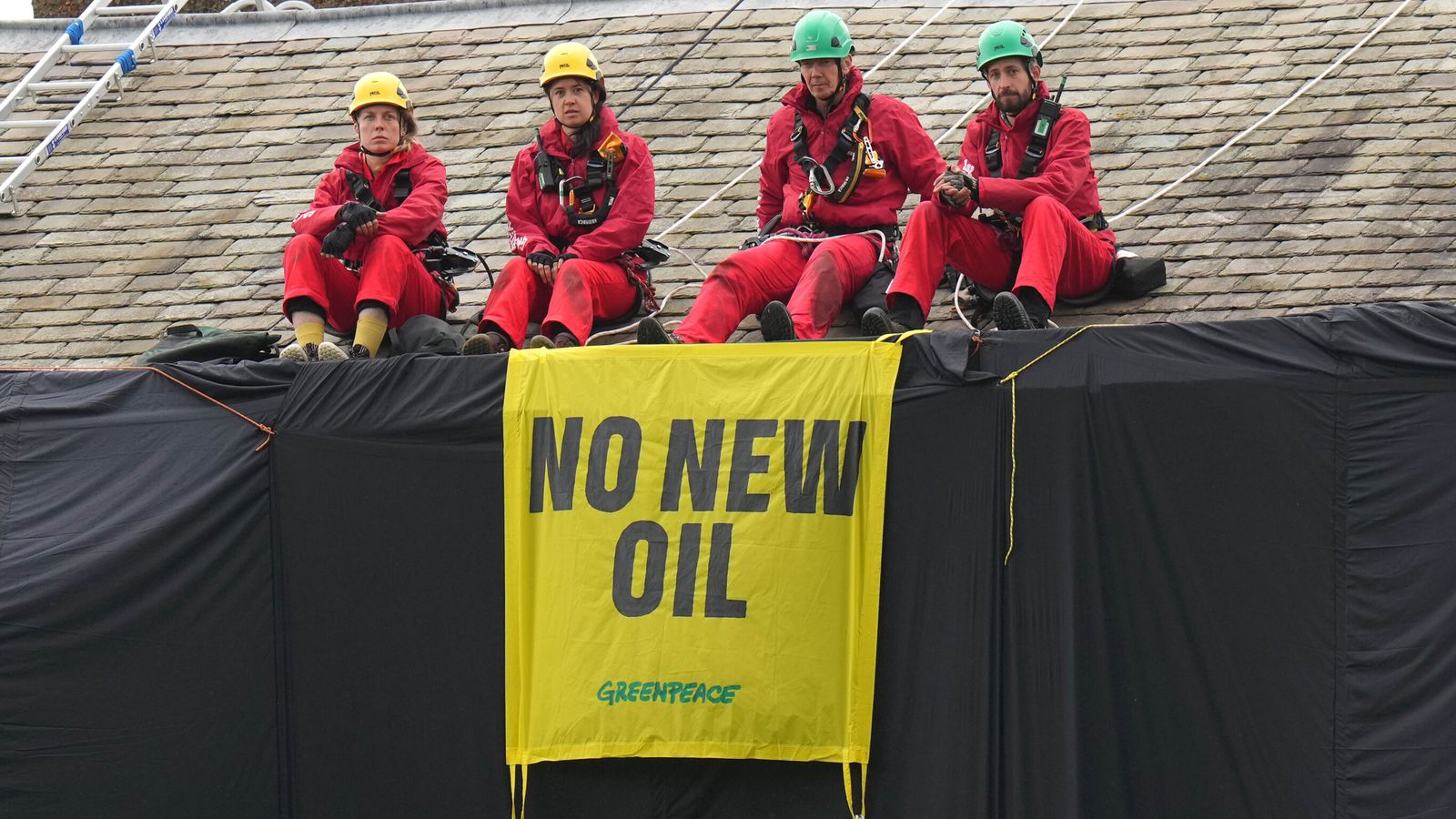Rishi Sunak will introduce an annual system to award new oil and gas licences in a move that is likely to anger environmental campaigners.
The government said it was bringing forward the plan so it can support the UK’s transition to net zero in a “pragmatic, proportionate and realistic way”.
The legislation will be set out on Tuesday in the King’s Speech, in which the government will outline its legislative plans for the year ahead.
It will require the North Sea Transition Authority (NSTA) to invite applications for new production licences on an annual basis, which the government says will bolster UK’s energy security, reduce dependence on imports from overseas and help secure 200,000 jobs.
The move will create a dividing line with Labour, which opposes the granting of new oil and gas licences in the North Sea.
It comes after the UK’s largest untapped oil and gas field was given the green light by the regulator, despite warnings about the climate damage of new fossil fuel projects.
Rosebank, 80 miles west of Shetland, contains around 300 million barrels of oil and is the UK’s last major undeveloped oil site – twice the size of the controversial Cambo oil field.
King’s Speech: The King will have to announce measures we know he is bound to dislike
The UK is floundering and has a problem | Adam Boulton
Rishi Sunak wanted to impress Elon Musk as he giggled along during softball Q&A
Read more:
Cigarettes, crime and net zero: What can we expect from the King’s Speech?
Green light for Rosebank oil field helps Labour label Tories as party of the past
The UK government says more oil will add to energy security, though the majority is expected to be sold to Europe and then reimported as refined products.
The government says granting new licences is justified because the UK still relies on oil and gas for most of its energy needs and will continue to do so even if it net zero in 2050.
It said each annual licensing round will only take place if key tests are met supporting the transition to net zero, including that the UK must be projected to import more oil and gas from other countries than it produces at home, and that the carbon emissions associated with the production of UK gas are lower than equivalent emissions from imported liquefied natural gas.
The NSTA will only invite applications for the new licences if these two conditions are met, the government said.
Mr Sunak said the plans would allow a transition to net zero “without adding undue burdens on households and securing the country’s long-term interest”.
“Domestic energy will play a crucial role in the transition to net zero, supporting jobs and economic growth, while also protecting us from the volatility of international markets and diversifying our energy sources,” he said.
“The clarity and certainty that our new legislation will provide will help get the country on the right path for the future.”
Claire Coutinho, the energy secretary, added: “The UK has cut its emissions faster than any of its peers. But as the independent Climate Change Committee acknowledges, we will need oil and gas even as we reach net zero in 2050.
“As energy markets become more unstable it’s just common sense to make the most of our own homegrown advantages and use the oil, gas, wind and hydrogen on our doorstep in the North Sea.
“Rather than importing dirtier fuels from abroad, we want to give industry the certainty to invest in jobs here and unlock billions of pounds for our own transition to clean energy.”
The Labour Party has previously stated it would not grant new oil and gas licences in the North Sea as part of its strategy to achieve zero-carbon electricity by 2030 – which has put it at loggerheads with some of its trade union supporters.
The policy of granting new oil and gas licences has been floated as one of the measures that could appear in the King’s Speech.
The prime minister said the King Speech will take the “long-term decisions to address the challenges this country faces, not the easy way out with short-term gimmicks”.
Other policies that could appear include plans to raise the legal age for buying cigarettes in England by one year every year to phase out smoking and compelling criminals to attend sentencing.






